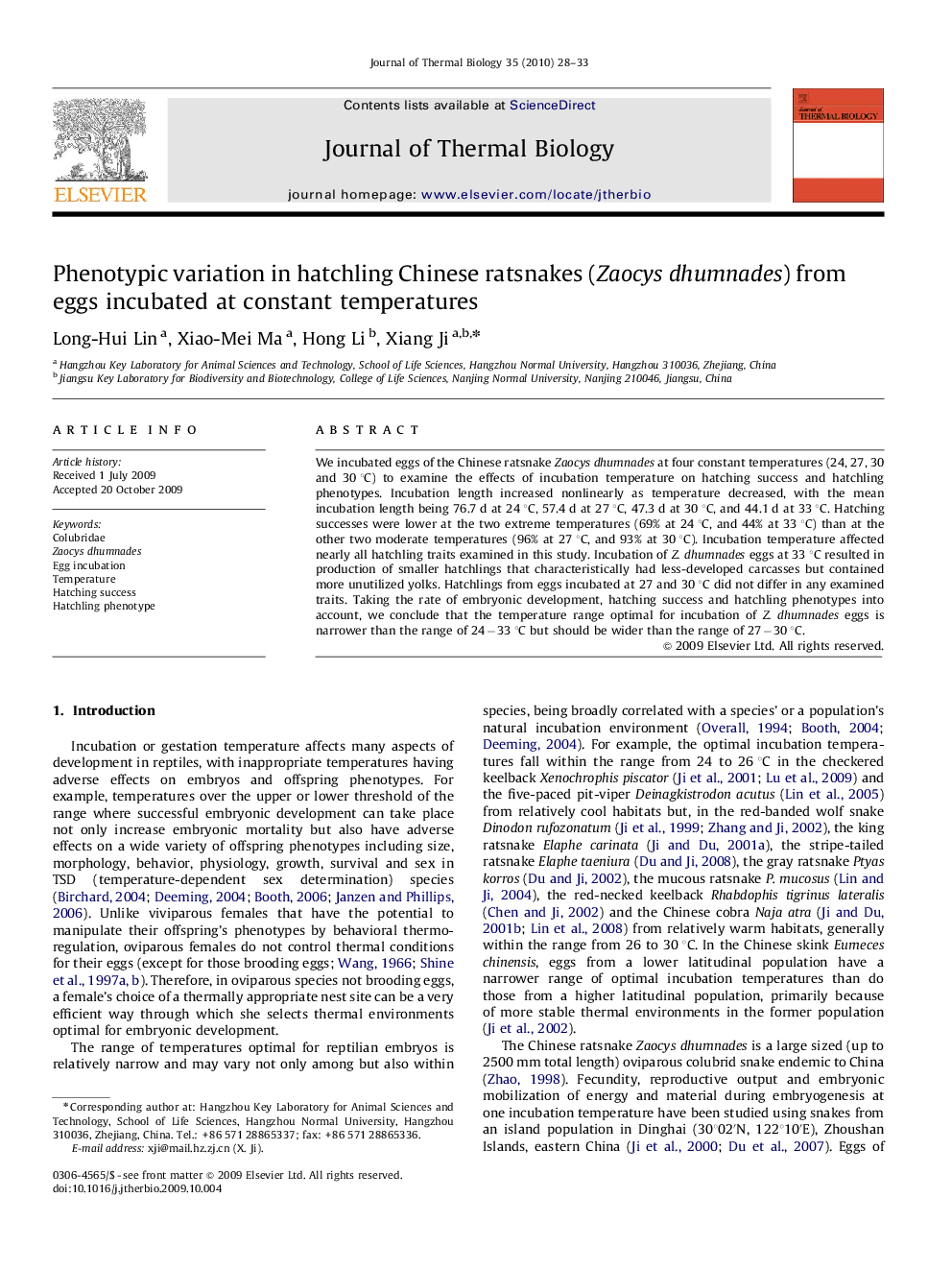| Article ID | Journal | Published Year | Pages | File Type |
|---|---|---|---|---|
| 2843572 | Journal of Thermal Biology | 2010 | 6 Pages |
We incubated eggs of the Chinese ratsnake Zaocys dhumnades at four constant temperatures (24, 27, 30 and 30 °C) to examine the effects of incubation temperature on hatching success and hatchling phenotypes. Incubation length increased nonlinearly as temperature decreased, with the mean incubation length being 76.7 d at 24 °C, 57.4 d at 27 °C, 47.3 d at 30 °C, and 44.1 d at 33 °C. Hatching successes were lower at the two extreme temperatures (69% at 24 °C, and 44% at 33 °C) than at the other two moderate temperatures (96% at 27 °C, and 93% at 30 °C). Incubation temperature affected nearly all hatchling traits examined in this study. Incubation of Z. dhumnades eggs at 33 °C resulted in production of smaller hatchlings that characteristically had less-developed carcasses but contained more unutilized yolks. Hatchlings from eggs incubated at 27 and 30 °C did not differ in any examined traits. Taking the rate of embryonic development, hatching success and hatchling phenotypes into account, we conclude that the temperature range optimal for incubation of Z. dhumnades eggs is narrower than the range of 24−33 °C but should be wider than the range of 27−30 °C.
